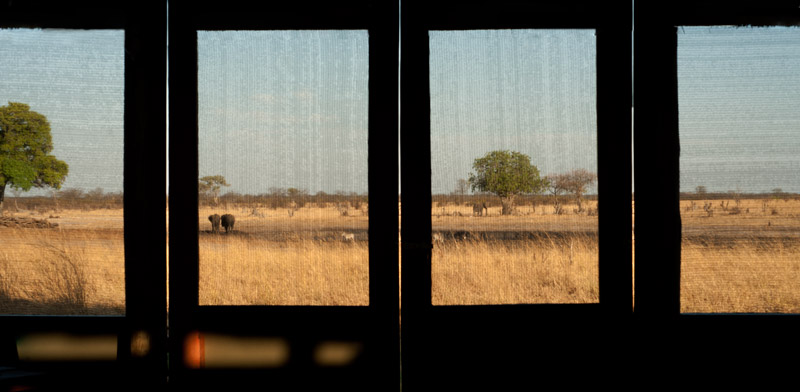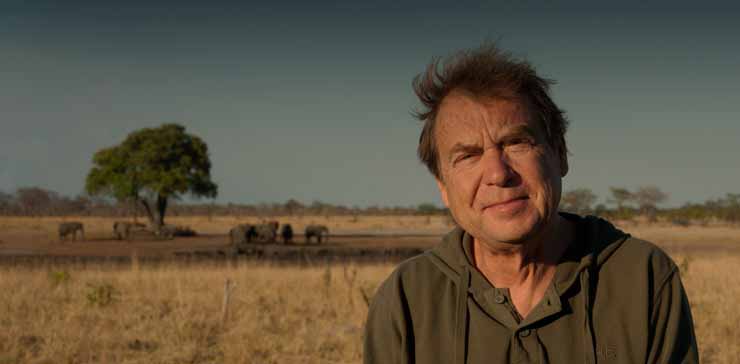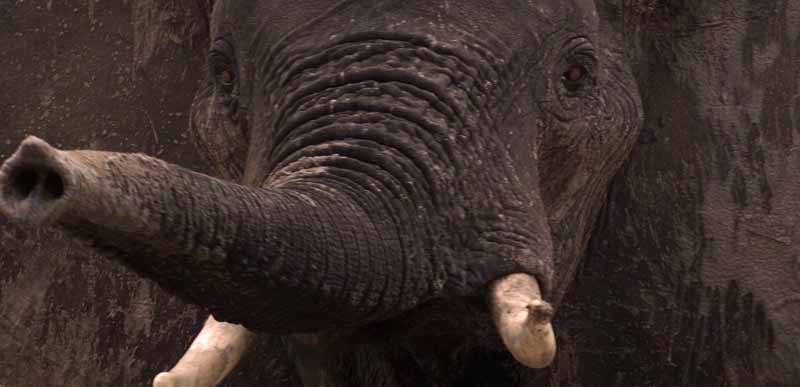
A camp in the middle of wildlife
Hwange Safari Camp is located north of the wildlife reserve having the same name, four hours drive from Victoria Zambezi Falls. Hwange Nature Reserve is part of the colossal project of “Kruger Park Trandfontier” extending from Kruger Park in South Africa to the Luangwa Valley in Zambia. Located around a water hole, half natural, half artificial, Hwange Safari Camp is one of the few camps offering very close proximity with nature. No fence separates from wildlife. Also it is quite usual that during the night, hyenas, leopards, lions, buffaloes and elephants come prowling around the eight smalls houses that comprise the camp. Fortunately, doors close very well! And it is a unique and intense pleasure to hear, from the confort of his cozy bed, all the sounds of the savannah. Isolated on a private concession, Hwange Safari Camp can enjoy the thrill of safari [without other vehicles disturb the feeling of immersion in the bush]. The camp also offers the unique opportunity to go by foot, with qualified and experienced rangers [Zimbabwean rangers are recognized to be the most proficient in all of Africa], to approach the elephants or lions can be. We’re here, far from organized safaris as proposed, most of the time, Kenya, Tanzania and also South Africa. We are nature’s most authentic as we can still find in Zambia and sometimes also in Botswana. For more information about Camp Hwange: www.makila.fr
Un camp au milieu de la vie sauvage
Le camp de HWANGE se situe au nord de la réserve naturelle du même nom, à quatre heures de route des chutes du Zambèze de Victoria. La réserve naturelle de Hwange fait partie du colossal projet de Park Trandfontier allant du Kruger en Afrique du Sud à la Luangwa Valley en Zambie. Implanté autour d’un trou d’eau mi naturel, mi artificiel, le camp de HWANGE fait partie des rares camps à offrir une proximité immédiate avec la nature. Aucune barrière ne le sépare de la vie sauvage. Aussi il est courant que durant la nuit, des hyènes, des léopards, des lions, des buffles ou des éléphants viennent rôder autour des huit habitations que comprend le camp. Heureusement les portent ferment bien ! Et c’est un plaisir intense et unique d’entendre, du fond de son lit douillet, tous les bruits de la savane. Isolé sur une concession privée, le camp de HWANGE permet de goûter aux joies du safari [sans que d’autres véhicules viennent troubler l’impression d’immersion dans le bush]. Il offre aussi la possibilité exceptionnelle de partir à pied, avec des rangers diplômés et expérimentés [les rangers zimbabwéens sont reconnus comme les plus compétant de toute l’Afrique], pour approcher les éléphants ou peut être les lions. Nous sommes loin ici des safaris organisés comme le proposent la plus part du temps, le Kenya, la Tanzanie ou l’Afrique du Sud. Nous sommes dans la nature la plus authentique telle qu’on peut encore la vivre aussi en Zambie et quelquefois au Botswana. Pour plus d’information à propos de Hwange Camp : www.makila.fr


